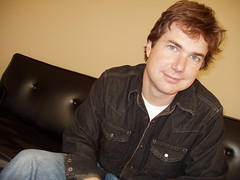
In light of my last post on clergy shirts, the topic today might contribute to the rumor that some kind of hyper-traditionalism has overtaken this site. That is not the case, and yet, the question today is "whatever happened to the practice of chanting in Christian worship services?" Perhaps I should mention that I am one who has never chanted a word in any service I've led. Chanting has never been tied to one particular branch of the church, so the numerical rise of one branch over any others can't be the answer for its general demise. (As evidence for this, compare Lutheran, Presbyterian, and Episcopalian worship books from a few decades ago -- they all have rubrics for chanting various prayers, Psalms, and biblical texts.) The rise of informalism could be the culprit, but informalism hasn't killed-off music or singing in general, and many forms of chanting are actually more simple than praise choruses. In fact, just learning a handful of chants would make the entire Psalter singable. How easy is that? Chanting provides some of the same benefits of singing longer melodies - it gets the truth of the words deeper into the heart, sort-of romancing us with what is said. Even other religions recognize this -- Muslims, Jews, and Hindus are big chanters, even today. Some Protestants might say that chanting sounds too medieval or Roman Catholic, but that response tends to be a catch-all rebuttal for any church practice that doesn't have roots in the Second Great Awakening. Chanting a few scripture readings in Sunday services might emphasize that we're to worship as we hear the Word read, and not just listen for content. Again, I welcome comments.

5 comments:
Chanting automatically brings me to the days of bar mitzvahs. Learning to chant a whole section of the scripture is the greatest challenge for a 13 year old kid, especially the boys who are experiencing that whole voice cracking deal!
Brian, so good to hear (or read) you again!!! I have started reading the forums on a website for the Anglican community in Sydney Austrailia (don't ask how I got hooked up with that one). The newest topic of research in my life: NPP. Anyways, I miss your sermons and talking to you in your office about whatever random topic I could discover.
Give Sally a huge hug for me!!
It's still more common that many people think in Reformed circles. We did it at a church Brenda and I attended in San Jose. I'd say we should give it a try some Sunday.
Tim Vaughan
Chanting is a huge topic, really. We chant a lot at church and school, but not nearly as much as we could. I was having a discussion with my curate about chanting collects and the Gospel and Epistle (motivated by your post Dr. Kay).
One of the tricks, I think, of good chanting, is that it must be done well, so that it moves the worshipper into the text instead of distracting them from it. This is a high calling and I've rarely heard it done well--at least in Gospel or Epistle chanting.
Collects are a bit easier. I'd like to think I do a passable job with them.
Of course, the Anglican tradition takes advantage of plainsong/Gregorian, etc. It also, however, has it's own tradition of chanting. You can buy the entire set of psalms chanted in Anglican chant by St. Paul's. (I believe we looked at them while at St. Paul's together, Brian. Can you believe that was nigh on ten years ago??)
There are probably other sets of psalms set to anglican chant as well. I am starting to have some particularly favorite composers.
A few of them are sung by our choir at school. Check out our sample on my blog: A Priest in the Mountains.
Good stuff Dr. Kay. Will check in more often with your blog!
Dr. Kay,
I obviously became somewhat confused as the link I gave for my blog goes right back to the post I was commenting upon. My blog is here
Blessings!
BF+
Why don't we chant? I'd say it's because of polyphany. As music shifted toward harmony from monody, the chant started to sound archaic (okay, "medieval," but literally medieval, as in "from the middle ages"), and the church commissioned new works that would glorify God in this harmonically richer way. To those who hadn't heard songs built around harmony before, I imagine these new songs must have sounded like the songs of angels (mystical, complex, strange, glorious). That's what I got from that music history class I took in college way back when. (Of course, I'm skipping Calvin's return to singing the psalms, trends within the Anglican church, and all of that. This answer is strictly pre-Reformation.)
Okay, BK, now I'll get back to that book editing. :)
Post a Comment